Blog
Who should not eat Makhana?

Makhana is rich in vitamins and minerals, such as iron and phosphorus. It also contains essential fatty acids, which are important for the growth of young children. Makhana is also rich in vitamin B1 (thiamine), B2 (riboflavin), B3 (niacin), and pantothenic acid. It has low amounts of sodium and sugar but high levels of protein and fiber.
Makhana, also known as foxnuts or lotus seeds, has gained popularity as a nutritious and versatile snack. However, like any food item, it might not be suitable for everyone. Certain individuals need to exercise caution or avoid consuming makhana altogether due to various health concerns and dietary restrictions. In this article, we will explore who should refrain from eating makhana and why.
1. Allergic Reactions:
Some individuals might be allergic to lotus seeds. Allergic reactions can range from mild symptoms like itching and hives to severe reactions such as difficulty in breathing. Individuals with known allergies to lotus seeds or related foods should strictly avoid makhana to prevent adverse reactions.
2. Digestive Disorders:
Makhana is a rich source of fiber, which can be difficult to digest for people with certain digestive disorders such as irritable bowel syndrome (IBS) or inflammatory bowel diseases like Crohn’s disease. High fiber content can exacerbate symptoms like bloating, gas, and stomach cramps in individuals with these conditions.
3. Diabetic Individuals:
While makhana is considered a healthy snack due to its low glycemic index, diabetic individuals should consume it in moderation. Eating large quantities might lead to a sudden spike in blood sugar levels, which can be problematic for those trying to manage their glucose levels.
4. People on Low-Sodium Diets:
Plain makhana is naturally low in sodium, making it a good snack choice for many. However, flavored varieties of makhana often contain added salt. Individuals following a low-sodium diet for managing conditions like hypertension or kidney problems should carefully check the packaging for salt content before consuming flavored makhana.
5. Individuals with Kidney Problems:
Makhana contains potassium, which can be harmful to individuals with kidney problems, especially if they are on potassium-restricted diets. High levels of potassium can overload the kidneys, leading to complications for people with kidney disorders.
6. Children and Choking Hazard:
Whole makhana seeds are small and hard, posing a choking hazard, especially for young children. Parents and caregivers should avoid giving whole makhana to small children or should crush them into smaller, safer pieces before consumption.
While makhana is a nutritious and tasty snack for many, it’s essential to recognize that it might not be suitable for everyone. Individuals with specific allergies, digestive disorders, diabetes, kidney problems, and those following low-sodium diets should exercise caution or consult a healthcare professional before including makhana in their diet. As with any dietary choice, it’s crucial to be aware of your individual health needs and limitations to make informed decisions about the foods you consume.
Makhana should not be consumed by pregnant women.
If you are pregnant, it is best to avoid makhana. The reason for this is that it can cause miscarriages and birth defects.
Do not eat makhana if you are allergic to any of the ingredients used for preparing this dish.
- Do not eat makhana if you are allergic to any of the ingredients used for preparing this dish.
- If you have diabetes or hypertension, then it is advisable not to take makhana as it contains sugar, which will increase your blood sugar level and may also cause high blood pressure if taken in large amounts by people suffering from these diseases or disorders
People with heart problems should avoid makhana as it contains a high amount of sodium.
If you have heart problems, it is better to avoid eating makhana. It contains a high amount of sodium, which can lead to an increase in blood pressure.
The body needs sodium but too much can be harmful for your health. According to dietary guidelines from the American Heart Association, most adults should limit their daily intake of sodium (salt) to less than 2,300 milligrams per day (about 1 teaspoon).
- Makhana is a good source of fiber, protein and other nutrients. It helps in digestion.
- Makhana is rich in antioxidants that help to fight free radicals by neutralizing them before they can damage your cells.
- People who are diabetic should avoid makhanas as they can cause spikes in blood sugar levels because they contain high amounts of carbohydrates and sugar.
- If you are overweight or obese then makhanas may not be good for weight loss as they contain a lot of calories from carbs which could lead to weight gain if eaten regularly over a period of time
We hope you have learned a lot about makhana and its health benefits. Makhana is one of the most nutritious foods that can be consumed by people of all ages. It contains many essential nutrients like iron, protein and calcium which are required by our body for proper functioning of various organs like heart, lungs etc. So if you want to eat something healthy then go for makhana!
Here is a list of [10] frequently asked questions about Who should not eat Makhana?:
1. Is it safe for pregnant women to consume Makhana?
Yes, makhana is safe to consume during pregnancy because it is low in calories and rich in fiber, protein, and other essential nutrients. However, it’s best to consult with your doctor before adding it to your diet.
2. Can Diabetic individuals eat Makhana?
Diabetic individuals can eat makhana in moderation as it has a low glycemic index, which means it does not cause a sudden spike in blood sugar levels. However, it is important to monitor the portion size and eat it in combination with other foods to avoid hypoglycemia.
3. Is Makhana suitable for individuals with Gluten intolerance?
Yes, makhana is gluten-free, which makes it suitable for individuals with gluten intolerance or celiac disease.
4. Can individuals with Nut allergies consume Makhana?
Yes, makhana is nut-free, which makes it suitable for individuals with nut allergies.
5. Is Makhana suitable for individuals with high cholesterol?
Makhana is an excellent snack for individuals with high cholesterol levels because it is low in cholesterol and saturated fats.
6. Can individuals with high blood pressure consume Makhana?
Yes, makhana is a low-sodium food and is suitable for individuals with high blood pressure. It also has the ability to regulate blood pressure levels and promoting heart health.
7. Is there any risk of food poisoning associated with the consumption of Makhana?
No, there is no risk of food poisoning associated with the consumption of Makhana. However, it’s important to ensure that it is stored properly and is not contaminated during the processing or packaging.
8. Can children eat Makhana?
Yes, makhana is a healthy and nutritious snack for children as it is rich in essential vitamins, minerals, fiber, and protein. However, like any other food, it’s important to monitor portion sizes as excess calories can lead to weight gain.
9. Does Makhana have any side effects?
No, there are no known side effects of eating makhana. However, it’s important to monitor portion sizes as excess consumption may lead to weight gain.
10. Is it safe to consume Makhana during chemotherapy?
Yes, makhana can be a great snack option for individuals undergoing chemotherapy. It is a natural source of protein and other essential nutrients that can help to boost the immune system and promote overall health.




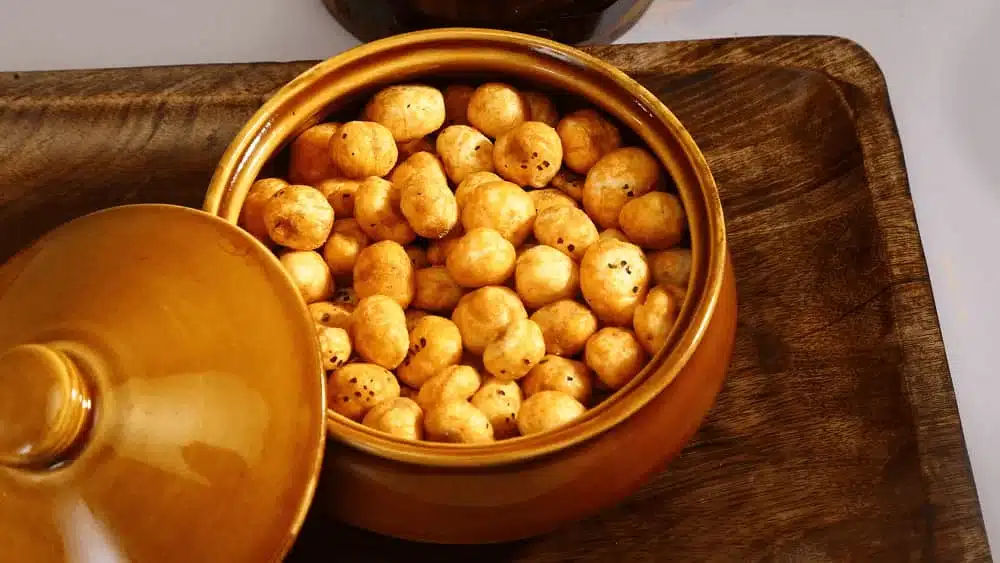
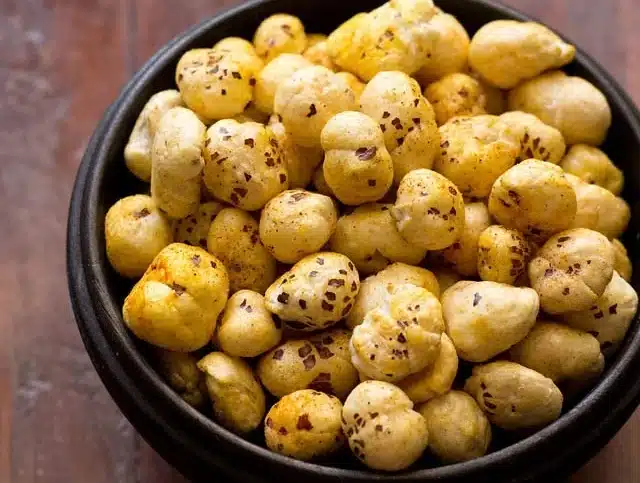
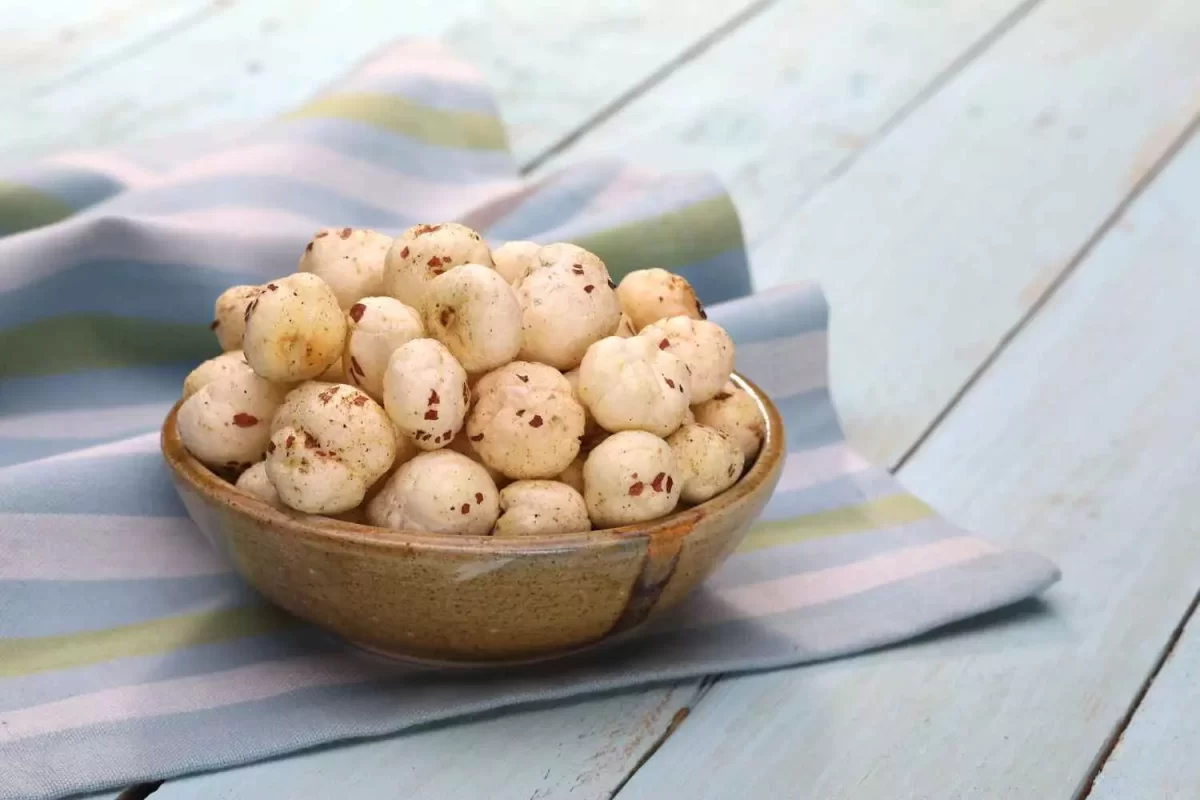


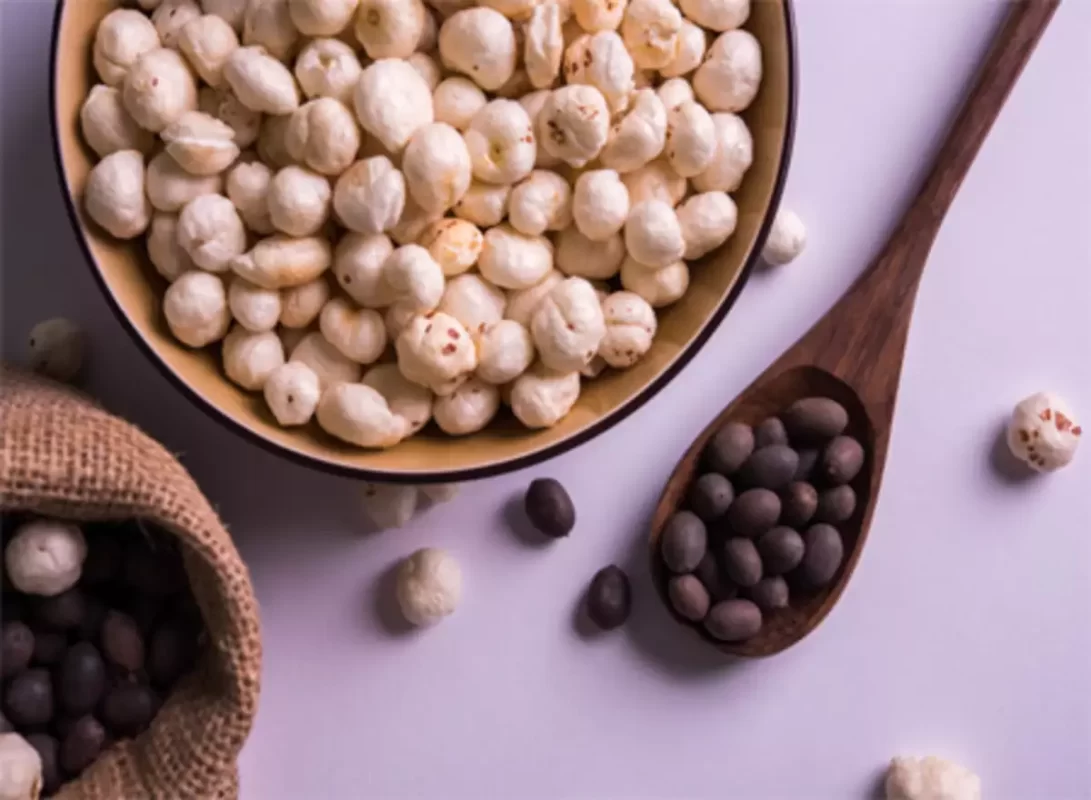
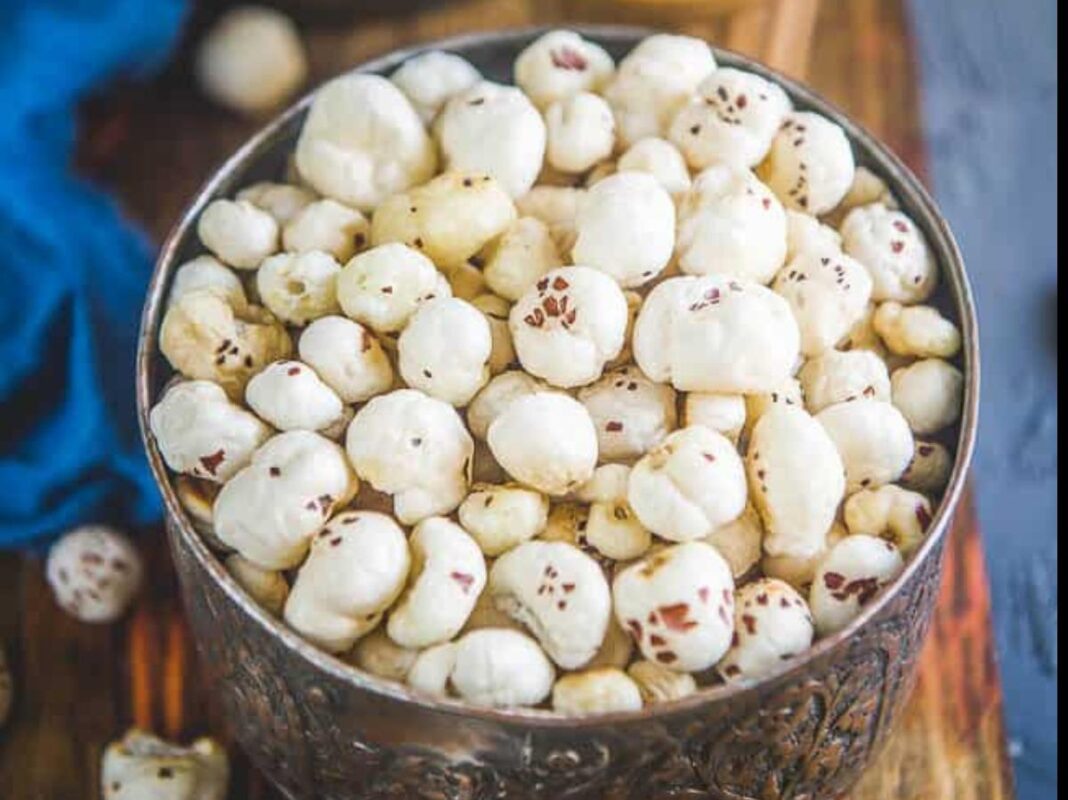


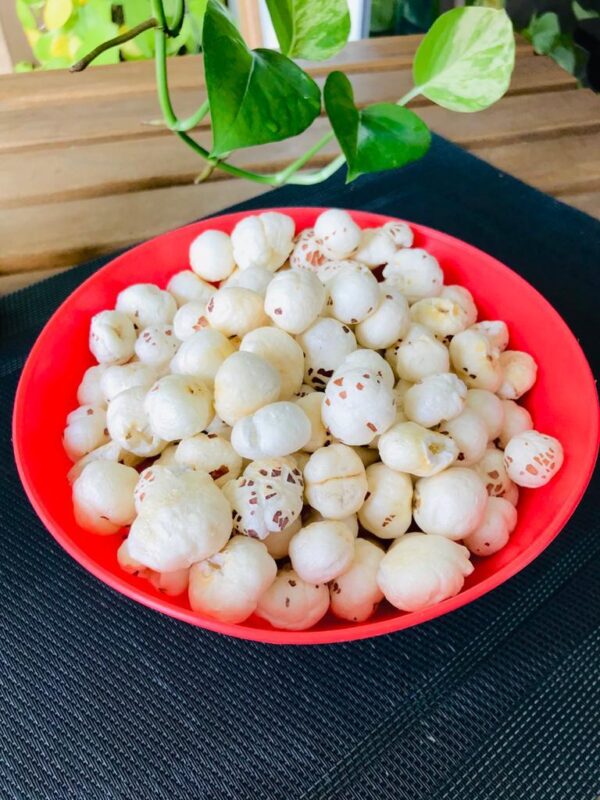
Thank you so much for your support.